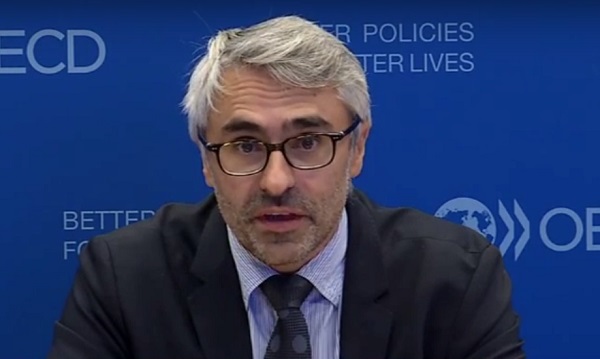
On Monday 5 October 2015, the Organisation for Economic Co-Operation and Development, of which Luxembourg is a founding member, published the results of its Base Erosion and Profit Shifting (BEPS) project.
The Organisation began work to this end in 2013, following the adoption of the OECD/G20 Action Plan to fight against tax base erosion and the transfer of profits, with the Grand Duchy playing an active role in the process. Luxembourg Minister of Finance, Pierre Gramegna, welcomed the publication fo these reports and recommendations, which will be submitted to G20 Financ Ministers at their meeting in Lima tomorrow.
"International tax rules were no longer adapted to the globalised economy of the twenty-first century," commented Minister Gramegna. "We had to increase the coherence of rules at the international level and the transparency of tax systems. Indeed, with the exisitng rules, some multinational companies were able to legally pay very little in taxes or pay only token amounts. The OECD recommendations will eliminated those abuses and strengthen the exchange of information between states."
The measures of the BEPS Project, categorised into 15 Actions, have been structure around the three central pillars of introducing coherence in the domestic rules that affect cross-border activities; reinforcing substance requirements in the existing international standards with a view to ensuring alignment of taxation of economic activity and value creation; and improving transparency and certainty for businesses and governments.
62 countries overall were directly involved in the development of these measures, including OECD countries, the G20 and developing countries. These countries will now be called upon to implement the proposed measures, as well as collaborate with one another on an equal footing, on the technical aspects of the BEPS project, including the negotiation of a multilateral instrument to amend certain clauses of the existing tax treaties.
"Base erosion and profit sharing affects [sic] all countries, not only economcially, but also as a matter of trust," commented OECD Secretary-General Angel Gurría. "BEPS is depriving countries of previous resourcees to jump-start growth, tackle the effects of the global economic crisis and create more and better opportunities for all. But beyond this, BEPS has been also eroding the trust of citizens in the fairness of tax systems worldwide. The measures we are presenting today represent the most fundamental changes to international tax rules in almost a century: they will put an end to double non-taxation, facilitate a better alignment of taxation with economic activity and value creation, and when fully implemented, these measures will render BEPS-inspired tax planning structures ineffective."
By early 2016, the countries concerned will also establish, at the request of the G20, a more inclusive action framework in the support and minoting of the implementation of all the reports from the BEPS project. Minister Gramegna stated that "Luxembourg is hanging on to the fact that the new rules are implemented by all States, in order to establish a true 'level playing field' for global business taxation. The Government will take into account the requirements of BEPS under the tax reform planned for 2017".
With a view to this 'level playing field', Luxembourg has deemed it essential that all developing countries by involved in implementing the BEPS measures, tailoring their specific interests and needs. Minister Gramegna continued: "Luxembourg supports the OECD's tax and development programme and pledged in the Addis Tax Initiative to increase its development assistance for the reinforcement of capacitires of the tax administrations of developing countries".
Pierre Gramegna, in his capacity as chairman of the 'Ecofin' Council, will attend on behalf of the European Union the Lima session of G20 Finance Ministers, where the reports and recommendations will be discussed further.
Photo by OECD Tax (Pascal Saint-Amans, Director, Centre for Tax Policy and Administration)








